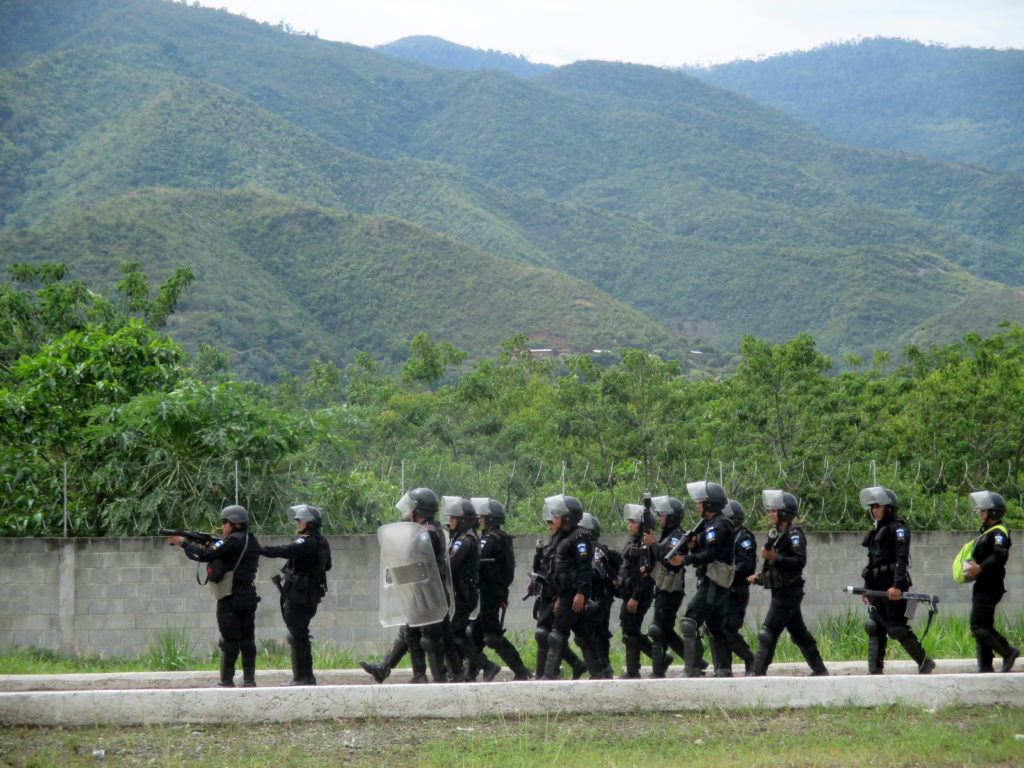
It was not even standing room only. Most people could not even fit in the Puerto Barrios courtroom. Journalists and human rights observers were relegated to the hallway leading to the tiny room where two indigenous Maya Q’eqchi’ fishermen and a journalist were waiting for their hearing on charges related to the local opposition to transnational nickel mining and lake pollution in El Estor, Izabal, in eastern Guatemala. The case highlights the ongoing environmental and human rights crisis in a country where corporate power regularly meets indigenous resistance.
Cristóbal Pop was waiting elsewhere in town, out of sight. The president of the Small-scale Fishers’ Union of El Estor, he faces the same criminal charges as the three in court, but he and fishers’ union vice president Eduardo Bin were both waiting to see if the judge would permit them to voluntarily appear as well. If not, they would wait to set up another hearing and keep a low profile, given the arrest warrants out against them.
“Just for defending our rights as Maya Q’eqchi’, we’ve been criminalized,” Pop told Toward Freedom while he waited. “Since everything on [May 27] happened, we’ve been facing persecution,” he said.
On May 27, 2017, the struggle of the Small-scale Fishers’ Union of El Estor against Lake Izabal pollution reached its peak. Dialogue with the government had completely broken down, so the organized fishers and other Q’eqchi’ residents set up a blockade at the western edge of town, blocking the road leading to the Fenix nickel mine, now owned by the Solway Group, a Russian conglomerate. Riot police had been brought in ahead of time to bolster the local police presence, and during the brutal crackdown, Q’eqchi’ fisherman Carlos Maaz was shot and killed by police.
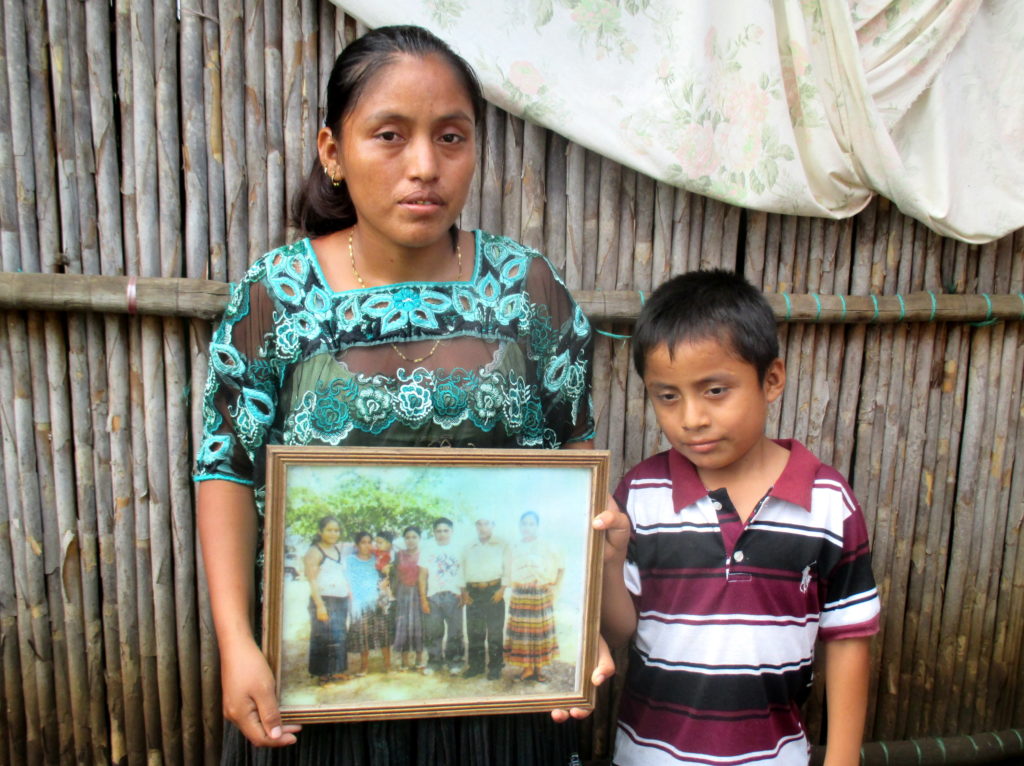
Today, as the one-year anniversary of Maaz’ killing approaches, the fishers’ union continues to demand a halt to mining activities pending consultation, as well as justice for Maaz. Their struggle continues in the face of ongoing criminalization and threats. Pop, Bin, and three other fishers’ union members still face criminal charges, as do two local journalists, Carlos Choc and Jerson Xitumul.
“In my case, I was unjustly imprisoned for 38 days simply for exercising my profession, journalism. So we also see how freedom of expression is under attack,” Xitumul told Toward Freedom outside the Puerto Barrios courthouse earlier this year. He is now out on bail, but restrictions while his trial continues include staying within the Izabal department, which limits his ability to cover Q’eqchi’ community issues in the nearby Alta Verapaz department, or anything anywhere else in the country, for that matter.
“Unfortunately, the situation with regard to criminalization has been significant, just for bearing witness and making known the pollution of Lake Izabal, a struggle undertaken by the Small-scale Fishers’ Union since last year,” said Xitumul.
In January 2017, four fishers associations in the municipality of El Estor joined together and formed the Small-scale Fishers’ Union of El Estor to create a united front to condemn pollution in the Lake Izabal, on which they rely for their subsistence fishing activities, pointing to the Fenix nickel mine and oil palm plantation activities around the lake. Government and company officials held dialogue sessions with them off and on, but they were largely unproductive and the fishers continued to organize legal and protest action.
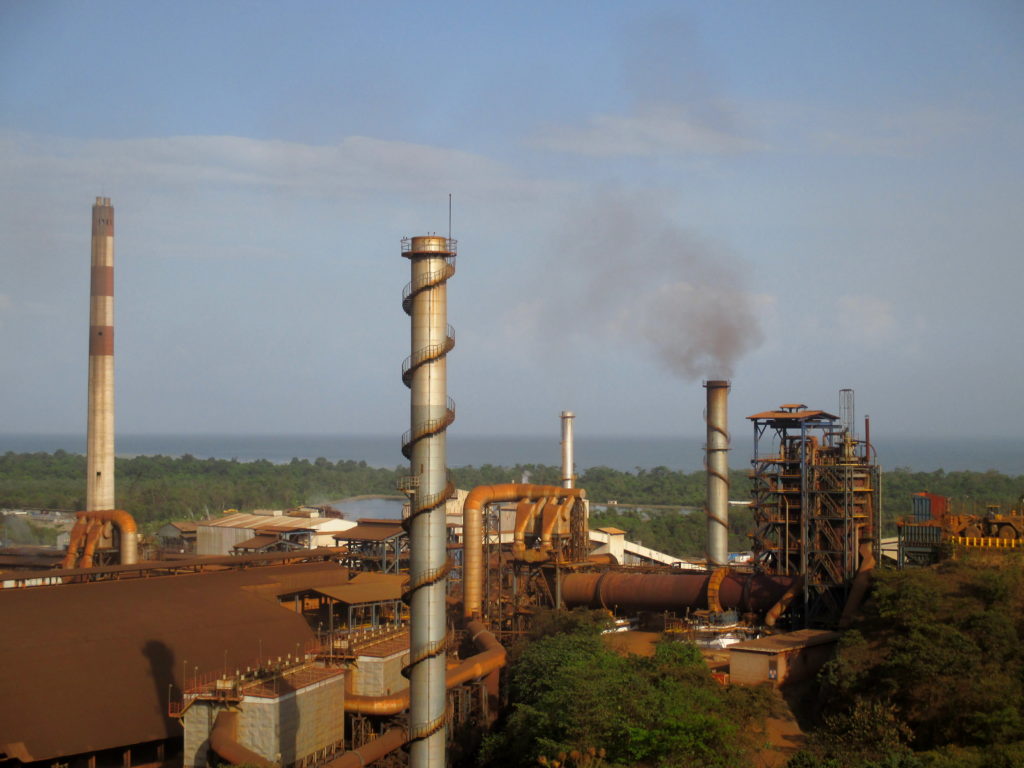
At the very beginning of May 2017, frustrated by government inaction, the Small-scale Fishers’ Union set up a partial blockade of the road leading to the Fenix mine. For 12 days straight, they let all vehicles through except for those transporting machinery, materials, or personnel to the mine. During that time, there were boisterous town hall meetings calling out the municipal council for siding with the mining company. Also during that time, four mining company employees attempted to circumvent the blockade and travel to the mine via boat. The organized fishers stopped them and held them – peacefully, with food and water – for a few hours until authorities arrived.
The charges against the Q’eqchi’ fishers and journalists stem from those incidents in early May. The El Estor municipal council and Solway Group employees filed reports, requesting prosecutors investigate and press charges. As a result, seven people were criminalized and charged with illegal detention, incitement to crime, criminal association, and other charges. A judge ordered arrest warrants for them all.
Fishers’ union member Juan Caal was the first to be arrested, on October 11, 2017. He was released on bail December 1. Jerson Xitumul was arrested on November 11, while he was working, camera in hand, in the center of El Estor. He was in custody for 38 days until his release on bail. His latest hearing was set for mid-May 2018, but it was postponed.
On February 20, 2018, Q’eqchi’ journalist Carlos Choc and fishermen Tomas Che and Vicente Rax appeared in court. Their lawyers from the Human Rights Law Firm had arranged for a hearing in order for Choc, Che and Rax to voluntarily appear. Fishers’ union president Pop and vice president Bin were waiting elsewhere in town in the hopes they could join the hearing as well. All five had had arrest warrants looming over their heads since the previous year, and that and ongoing intimidation and threats were taking a toll.
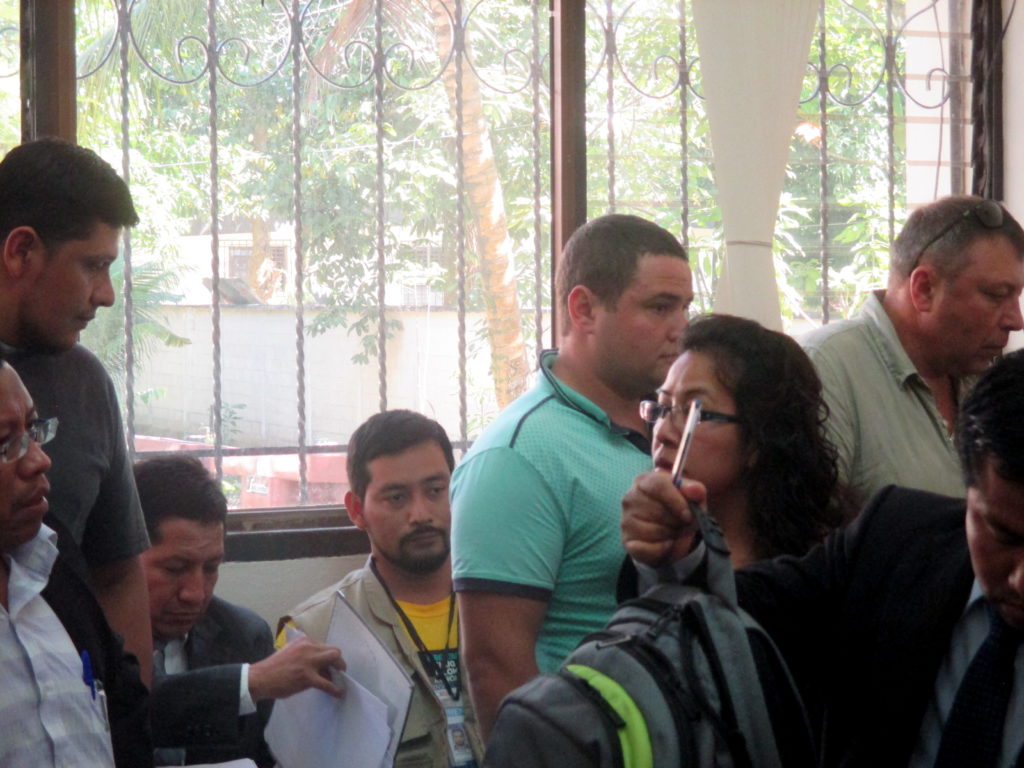
Choc, Che, Rax and their lawyers crammed into the courtroom along with prosecutors and mining company personnel. Observers from the Guatemalan office of the United Nations Office of the High Commission for Human rights, Peace Brigades International, the office of the governmental human rights ombudsman and other human rights observers lined the hallway together with journalists. Relatives of the accused and other supporters from El Estor had to wait in the central area of the courthouse.
“I came to support them too,” Cristina Xol told Toward Freedom. Xol was the partner of Carlos Maaz, the 27-year-old Q’eqchi’ fisherman killed by police in May 2017, and is the mother of his son, now nine years old.
“The company is against the fishers,” said Xol. “It’s unjust.”
Xol and others sat and stood around waiting in the partially open air courthouse, where blond-haired, blue-eyed children were running around playing. The wives and children of the four Ukranian and Russian workers allegedly “detained” were also waiting, as were 15 or so locals from the El Estor area who had been brought in by the company. Whenever cameras were around, the latter group held up signs in support of the company with messages such as ‘No To Violence’ and ‘I Want To Be Able To Go To The Market Without Fear.’
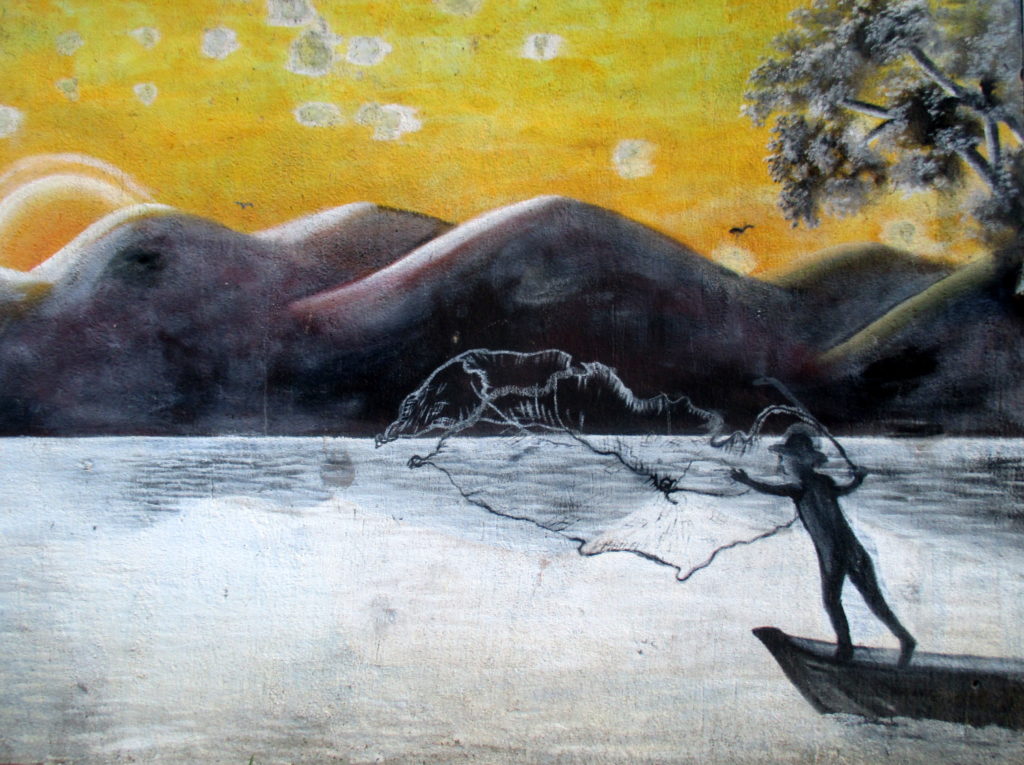
In the end, the judge postponed the hearing, arguing that conflict could break out between the two groups. Choc, Che and Rax were not detained on site, however, and quickly left the area, since there are still warrants out for their arrest and that of Pop and Bin. The judge set a hearing date for mid-April, but it was again postponed. Xitumul’s mid-May hearing was also postponed.
Xol and the Q’eqchi’ fishers are also waiting for justice for Maaz’ death one year ago this Sunday. Police opened fire when they were evicting the blockade and protest on the road leading to the mine. One man was shot and injured and helped to safety, but when the tear gas began to dissipate, it was clear that someone else had been shot and was lying motionless in the middle of the road. It is unclear if Maaz died instantly or whether he passed away in the minutes following his shooting, since police again opened fire, preventing anyone from approaching while the security forces left the area.
The following day, May 28, 2017, the sun rose to find El Estor swarming with riot police and other police forces from around the country. They had arrived overnight after the local police station had been ransacked and set on fire amid the local outrage over the police killing. Maaz was buried May 28, and hundreds of police were aware of the funeral procession from Maaz and Xol’s humble home to the cemetery, but government officials at a press conference in Puerto Barrios stated that they had checked and no one had died.
Xol and others continue to fight for justice for Maaz’ killing. His body was exhumated last December, and investigations continue due to pressure from locals and their lawyers.
“I’m not afraid because I continue to ask for justice for the death of my husband,” said Xol. “I want the police to pay, because they’re the ones who killed my husband,” she said.
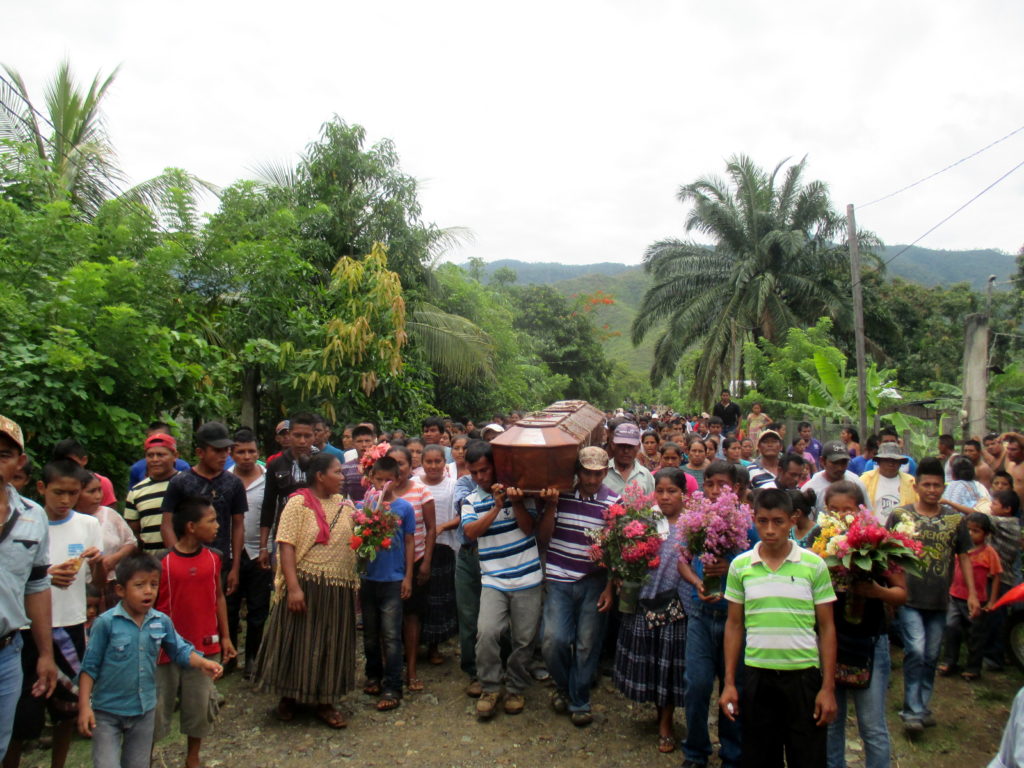
Maaz was one of the latest in a long line of local Q’eqchi’ residents killed in connection to the Fenix mine. The mine was initially owned by the International Nickel Mining Company (INCO), a Canadian company, which advanced the project under military rule as mining critics and Q’eqchi’ community leaders in the area were being killed and disappeared. After just a few years of production in the late 1970s, the project was suspended. Violence accompanied its resurgence in the late 2000s right through to the mine reopening in 2014. During that period the mine was owned by Canadian companies Skye Resources and Hudbay Minerals, before its purchase by the Solway Group.
In February 2017, the fishers union and the Center for Legal, Social, and Environmental Action (CALAS) filed a motion in a Guatemala City court for an injunction against company operations due to the lack of consultation with affected indigenous communities.
“Consultation never occurred,” said union president Pop. “The goal of the Small-scale Fishers’ Union is to seek consultation.”
For a year now, Pop and other fishers union members and leaders, as well as journalists Choc and Xitumul, have been facing intimidation and threats ontop of the ongoing criminalization. The mayor himself sometimes stops by to take photographs outside Pop’s house, he said.
Despite the persecution, the fishers’ union’s struggle continues, as does the fight for justice for Maaz. The anniversary of his death will be honored this Sunday in El Estor.
Sandra Cuffe is a freelance journalist based in Honduras. You can find her on twitter at @Sandra_Cuffe or read more of her work on her website at sandracuffe.com.
Other recent Toward Freedom reports from Central America by Sandra Cuffe:
Made in the USA: The Honduran Political Crisis, Rebooted
Voices from the Barricades: Protests Against Election Fraud Intensify in Honduras
